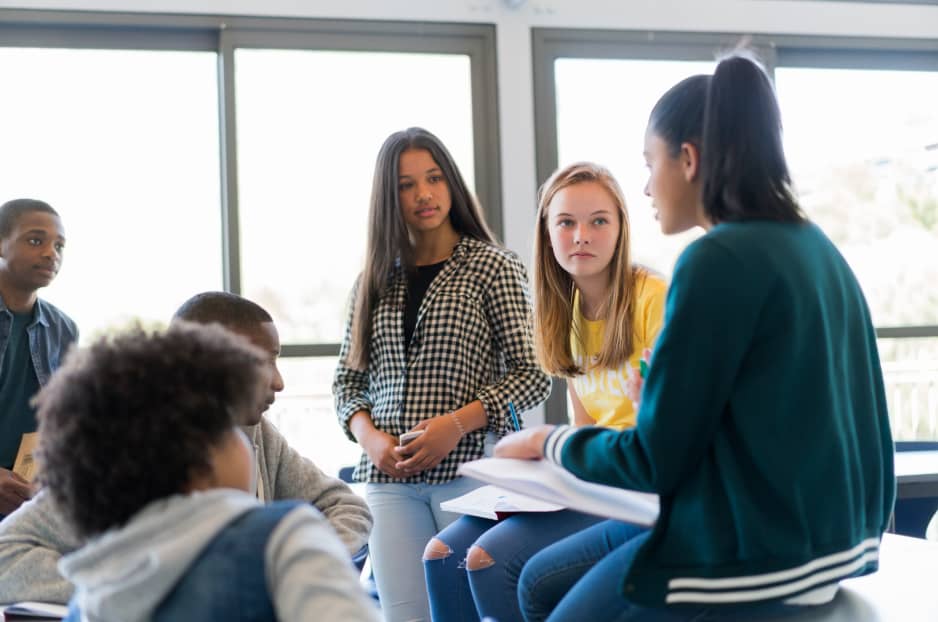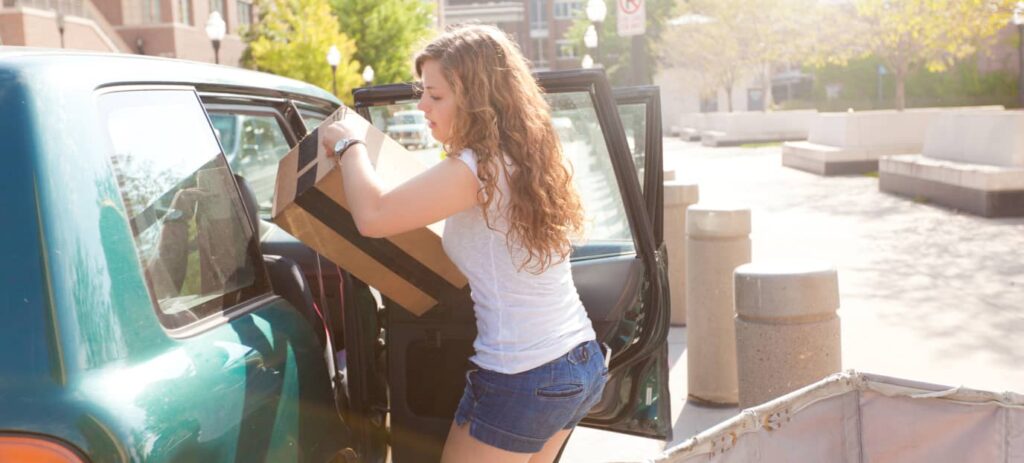
Youth Services
Age of protection
In 2018, Ontario increased the age of protection to include all children under the age of 18 years.
Youth ages 16 and 17 may need to access protection services if they are experiencing abuse, neglect and/or abandonment, or if they are at risk of any of these things. If youth have left home because of concerns about safety or risk of harm at home, or if youth are homeless, they may be eligible for services from a children’s aid society.
Societies provide services to youth to help keep them safe and provide support to their families.
Societies begin their work when they receive a request or referral for service. The request may come from someone in the community who is concerned about a youth’s safety or youth may also make a request on their own behalf.
Societies will then consider the information and may begin an investigation. The society will want to hear from youth about their experiences and concerns to help them assess whether youth are in need of protection and, if so, what services are appropriate for them. The society may have to talk with the youth’s family about the information provided.
Youth should expect to be involved in all important decisions that concern them. This includes:
- planning around safety;
- youth’s living arrangement;
- youth’s interests regarding education or employment;
- medical care; and
- any programs that will support youth in their transition to adulthood.
When youth receive services from a society, they should also expect support in identifying and developing relationships that they feel are important and helpful to them, and that they want to last throughout their life. Services will focus on helping youth stay connected to family, community and their culture.
VYSA
Increasing the age of protection means that youth may be able to enter into a Voluntary Youth Services Agreement (VYSA) if youth:
- are aged 16 or 17;
- cannot be protected at home or in their current living situation;
- have no other safe options with family, friends or another member of community or extended family; and
- need an out-of-home placement.
If youth enter a VYSA, they will work with a society to develop a Voluntary Youth Services (VYSA) Plan. Part of that plan will be to make sure youth have a housing option that is safe and appropriate. The plan will also identity goals and the supports that will help youth meet their needs and work toward their goals.
Prior to entering a VYSA, societies will:
- ensure youth meet eligibility requirements;
- inform youth of the voluntary nature of the agreement in a manner that they can understand;
- make a referral to the Office of the Children’s Lawyer to provide youth with an opportunity to receive legal advice about the options available; and
- provide youth with an opportunity to consult with an advocate or trusted adult prior to signing the agreement and/or have these persons attend planning meeting.
If youth are First Nation, Inuk, or Métis, the society will provide notice to their First Nation band, or First Nation, Métis, or Inuit community, that the society is preparing to enter an agreement with the youth so that services are provided in a manner that respects and helps preserve the youth’s cultural identity and supports youth to remain connected to their community, heritage and traditions.
Youth programs:
Youth programming at our organization covers a variety of topics to support youth to be safe, succeed and thrive as they transition from care to adulthood. Topics such as financial literacy, daily living skills, budgeting, and developing social and community networks are covered through group programming and through one on one support with our preparation for Independence workers. We also provide support for educational achievement and emergency housing through our POD model education program and our Transition House. Specific program offerings include:

1. Financial literacy and Independent living groups

2. JVI – “Just Voice it”
JVI – “Just Voice it” is a youth advocacy group that meets weekly and is made up of youth in care who are interested in some informal leadership opportunities that includes helping organize youth events; planning workshops or special topics for other youth in care; and participating in events through our Eastern Zone YouthCAN and other provincial wide initiatives through child welfare.

3. POD model program
This is an educational program that provides wraparound service for youth ages 13-21+. The program is comprised of a teacher mentor, an independence worker, and up to 5 teacher candidates from the University of Ottawa who support our youth in care in their educational journey. Support is provided virtually one on one with youth however the teacher candidates can also provide advocacy with individual schools and teachers.

4. Educational Liaison
Educational Liaison – coordinates educational supports for the children and youth receiving services from the society. Our Educational liaison helps to resolve issues that impact children and youth’s learning, and strengthen relationships among the agency, school boards (Public, Catholic and French), other education and employment resources, and partner agencies in order to improve the educational outcomes of eligible children and youth.

5. Homelessness prevention
Our transition house in Brockville is funded through the United Counties of Leeds and Grenville Homelessness prevention and is staffed by workers from our organization. The house is located in a quiet residential area and is a small two bedroom residence. Youth ages 16+ are able to reside in the home for up to 60 days while our staff help them to secure more long term housing solutions. During their time in our transition house, youth will work on developing their daily living skills; develop a plan for their education or employment; and prepare themselves to live independently.